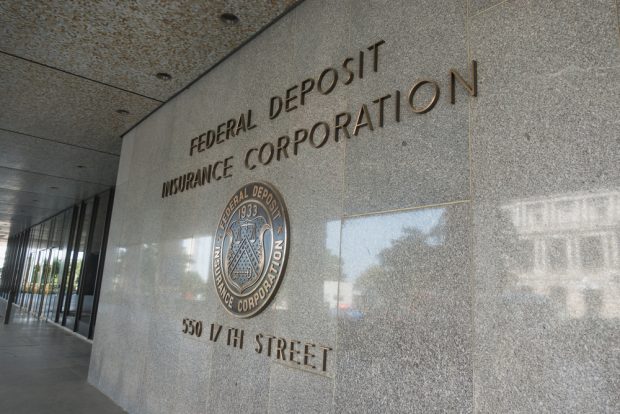WASHINGTON – In response to a complaint from a predominantly conservative watchdog group, the Federal Elections Commission (FEC) has opened an investigation into Representative James Moran's (D-Va.) $477,000 loan from MBNA, a noted purchaser of credit unions' card portfolios and major card issuer. In early July The Washington Post reported that Congressman Moran significantly increased his support of bankruptcy reform, an effort which MBNA supported, after receiving a very favorable rate on the loan. That media report, which it called "well-researched," led the National Legal and Policy Center to file the complaint with the FEC, the group said. The complaint points out that Moran was a candidate for congress at the time of the loan and that federal election law forbids loans to candidates from financial institutions over the contribution limit of $1,000 unless they meet a number of conditions ensuring that the candidate is not receiving special treatment, the group said. "Federal campaign finance law requires that any bank loan to a candidate or committee must bear the bank's `usual and customary interest rate' and must be made on a basis that `assures repayment,' said NLPC Chairman Ken Boehm. "The Moran loan clearly fails both tests. The fact that Moran was doing very important political favors for the company at the time of the loan certainly makes it look like a corrupt politician selling his influence to get out of financial trouble." It's unclear what, if anything will happen to Moran if the FEC finds merit in the NLPC complaint. The law authorized the commission to fine transgressors, but David Kendrick, spokesman for the group, said that the shame of having been found to have significantly broken federal election law would probably be punishment enough. "I don't know of any congressman who has successfully run for election or re-election with the fact that he has broken federal law on his record," Kendrick said. The FEC refused to comment on the matter, citing its ongoing status. The NLPC complaint named Moran, the Moran For Congress organization and the Wilmington-Delaware based MBNA Corporation as respondents. "The gravamen of this complaint is quite simple," said NLPC in its filing. "The mortgage provided in this case by MBNA constitutes an illegal contribution to a candidate for federal office because the mortgage does not satisfy the requirements of the Federal Election Campaign Act and Federal Election Commission regulations. The terms and conditions of the loan are starkly different in many critical ways from the terms and conditions available to other individuals in a similar fact situation." The group's complaint pointed out that the FEC's guidelines for candidates made clear the parameters a loan had to meet in order to keep it from being considered a campaign contribution, even if the loan was to the candidate themselves and not to the their campaign organization. The parameters dictate the loan must bear the usual interest rate for the type of loan it is, that it must be in writing, that it must have an amortization schedule and that it must be able to be repaid. The group then alleged that Moran's loan from MBNA failed on two of the four critical points. The organization noted on the first point that the loan's 10.5% interest rate was significantly below the 12.84% average which loans with similar risk carried, according to an analysis conducted by the paper. The lower interest rate saved Moran $800 per month or over $288,000 over the course of the loan, the group said. The limit for donations to candidates for federal office is $1,000. "Nothing whatsoever provided by Moran or MBNA or any other source even begins to make the case that Moran paid an interest rate appropriate for the size and riskiness of his mortgage," NLPC said. "If MBNA routinely provided poor credit risks in the same category as Moran with 10.5% interest rates, they had every opportunity to disclose that fact, but did not." Second, NLPC also alleged that MBNA made the loan without having the appropriate safeguards in place to insure repayment. MBNA's appraiser put the value of the property that Moran put up as collateral for the loan at $460,000, an amount, the group noted, that other appraisers had called significantly too high. Specifically, the complaint alleged that the appraisal overvalued the lot upon which Moran's house sat, failing to note it was "sub-standard" due to size. Further, the group pointed out that, even in the relatively high-flying real estate market of that time, Moran and his wife had only been to get $451,000 for the house and lot. Based in part on the way the prices of comparable homes had risen, the group estimated that Moran's property should have more reasonably been appraised at $342,000, or $118,000 dollars less. "Given MBNA's policy of not loaning more than 80% of a home's appraised value, if the Moran property had been appraised at the more accurate value of $342,000, then Moran would only have qualified for a loan of about $273,600 – an amount $173,900 less than what he received from MBNA," the group charged. As reported in July, the ongoing disclosure of the circumstances of the Moran loan may not be enough to derail bankruptcy legislation but will continue to make an already controversial measure even more difficult to pass, according to published media reports. Frank Torres, legislative counsel for Consumers Union, told the New York Times that the group intends to use the Moran affair in its continuing opposition to the bill, even if that opposition is ultimately futile. "We've got a questionable loan being made to Congressman Moran at the same time he is agreeing to support this industry-sponsored bill. He was an early Democratic supporter, which gave it an air of bipartisanship." Travis B. Plunkett, legislative director of the Consumer Federation of America, said his group supported the complaint. "We've got a well-timed loan to a key politician on a high-profile issue that he played a major role in. If that doesn't warrant an ethics investigation, what does?" [email protected]
© Touchpoint Markets, All Rights Reserved. Request academic re-use from www.copyright.com. All other uses, submit a request to [email protected]. For more inforrmation visit Asset & Logo Licensing.






